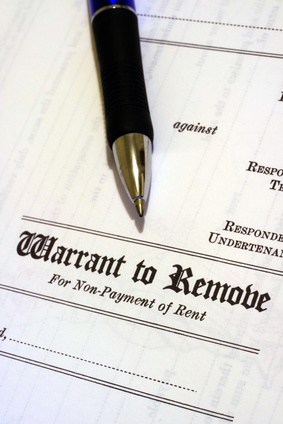
One of the most important factors in determining how to evict someone is whether the person to be evicted ever paid any amount of money in exchange for his or her occupancy. The reason for this relates to the fact that there are essentially two mechanisms for eviction: the non-payment proceeding and the hold-over proceeding. The non-payment proceeding is limited to landlords seeking to evict tenants for having unjustly failed to pay rent; the hold-over proceeding is used for all other types of evictions and is not limited to landlord-tenant relationships. Since different procedural predicates are required in hold-over proceedings based on the particular relationship of the occupant to the property, it is crucial to know what type of proceeding to bring.
Where money has been paid by the person to be evicted, especially on a regular basis, a landlord-tenant relationship is usually presumed. This is also a cue to the experienced landlord-tenant lawyer that the only proceedings available are those that involve a landlord-tenant relationship.
Hugh and Marie Burke recently learned this lesson the hard way when they were evicted as tenants, even though there was never a traditional rental agreement or landlord-tenant relationship between the parties. In fact, in Jean-Joseph v Burke, Nassau Dist Ct, Nov. 13, 2013, Fairgrieve, J., index No. LT-001531-13/NA (2013 NY Slip Op 51835[U]), the payments made by the Burkes to Joanne Jean-Joseph, the petitioner in the case, would not have been considered rent anyplace other than in a landlord-tenant court, where that distinction made all the difference.
Joanne Jean-Joseph commenced a hold-over proceeding, pro se, to recover possession of property located in Valley Stream, New York, from the Burkes. The Burkes, who were represented by David B. Calender, a Valley Stream lawyer, failed to file a written answer. Jean-Joseph is the “common-law” wife of the Burkes’ son and the mother of the Burkes’ two grandchildren. In 2007, the Burkes located a house in Valley Stream for purchase. Their credit rating, however, was not high enough to purchase the property in their own names. Instead, they requested Joanne Jean-Joseph to use her credit to purchase the premises and she agreed to do so in her name. The closing occurred on October 11, 2007, and the title to the property was placed in Jean-Joseph’s name. The purchase price was $411,000.00.
The Burkes alleged that Jean-Joseph agreed verbally to transfer the title into the Burkes’ names. The Burkes moved into the property in 2007 and have continuously resided there until present. Jean-Joseph never lived at the home.
Jean-Joseph testified that the agreement between the parties was for the Burkes to pay the mortgage at the rate of $2,700.00 per month. On cross examination, she testified that the mortgage payments constituted rental payments in her view. She further testified that the Burkes made only two mortgage payments in 2007 and then never paid anything further. Jean-Joseph did not know that the Burkes had stopped paying the mortgage until she tried to purchase a car and was denied for poor credit (her credit had been adversely impacted by the Burkes’ failure to pay the mortgage).
Although this certainly does not sound like a landlord-tenant relationship, those two payments of money by the Burkes, i.e., the mortgage payments, were sufficient to create a landlord-tenant relationship for the purpose of the eviction. Citing Matter of Lefton, 160 AD2d 702, 553 NYS2d 783 (2nd Dept 1990), Nassau County District Court Judge Scott Fairgrieve held that mortgage payments can constitute rent and that the evidence demonstrated that the parties entered into a rental agreement. Judge Fairgrieve further held that since the Burkes failed to file an answer and thus admitted the allegations of Jean-Joseph, all affirmative defenses were waived for failure to assert the same in a written answer, but the Court did not explain why the Burkes’ lawyer did not file an answer to the petition.
The result of all of this: the Court found that Jean-Joseph is entitled to a judgment of possession and a warrant of eviction stayed until December 31, 2013, after which she may immediately evict the Burkes. This case is a reminder that any payment of money made by a person in possession of property to the owner of the property will likely be construed as rent and will create the presumption of a landlord-tenant relationship for the purposes of eviction. The best way for a landlord to find out what type of proceeding is proper, and to avoid having an improperly brought case dismissed, is to consult with and retain a knowledgeable and experienced landlord-tenant lawyer from the onset.









